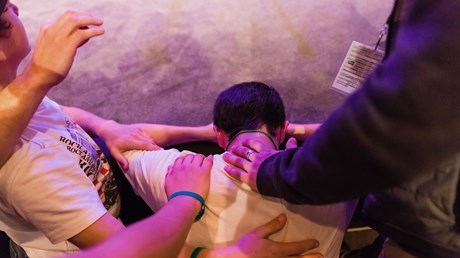Let’s ask the early church fathers.

Sometimes we start our history in the wrong place. It can be tempting to trace our roots back to the origin of our denomination or even the origin of Christianity in our country. But taking a longer view by tracing our roots back to the early church fathers leads to some surprises. We discover that some things, though relatively unusual in recent times, are actually very normal across the broader sweep of human history. Angels and demons would be an obvious example. Or, more surprisingly, miraculous gifts.
There is general agreement today that gifts like languages, prophecy, and healing disappeared early in the church’s history. Among those who believe they have ceased, this confirms the view that miraculous gifts are novel or even unorthodox. Among those who believe they continue, it confirms the view that modern charismatics are the radical heirs of a long-lost flame.
If we start our history at the Reformation, this is understandable. Ongoing prophetic (let alone apostolic) revelation sounded like the Roman Catholic view of the papacy. Miraculous gifts could easily be associated with practices like venerating the relics of saints. Those we call “charismatics” or “Pentecostals” today—people like me—would certainly have troubled many of our Reformation ancestors.
Yet if we take the long view of church history, the picture looks different. The New Testament is obviously full of miracles, but many patristic writings suggest that this continued throughout the first few centuries. Justin Martyr, the first great Christian apologist, put it bluntly in his Dialogue with Trypho (written around A.D. 160): “For the prophetical gifts remain with us, even to the present time.” So did ...
from
http://www.christianitytoday.com/ct/2018/may/andrew-wilson-language-prophecy-healing.html
No comments:
Post a Comment